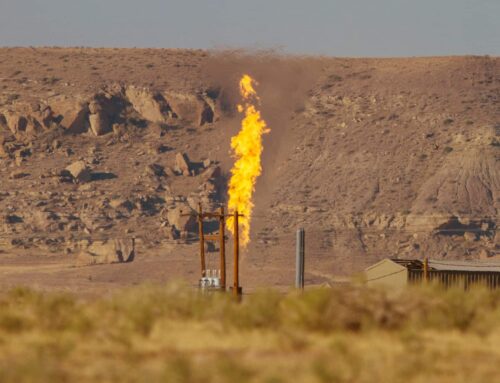With the passage of the Senate Energy Bill last week, our national energy policy has become the poster child for all that is wrong with Washington. Every stage of the Energy Bill's design and creation has involved the securing of massive welfare handouts for wealthy corporate interests.
The story begins with the energy industry contributing millions of dollars to the campaigns of Democrats and Republicans in Congress. It should come as no surprise that those “contributions” bought industry unprecedented access and influence over the legislative process, and set in motion a policy process that resulted in legislation that dishes out billions of dollars in subsidies and tax credits to very profitable companies.
The interest of the broader public was forced into the wings when the President's energy task force held closed-door meetings with industry executives where they were asked to play the role of Il Duce in creating a wish list for their industries. Rather than the long-term interests of the nation's pocket book or the public good, when the President released his national energy strategy, corporate profits received the most attention.
The House followed in lock step with consideration of H.R. 4, the House Energy package passed last August. It includes a whopping $33 billion in tax credits and incentives for energy companies, including new subsidies for oil, gas, nuclear, coal and electric utilities, but offers little to taxpayers and consumers. Legislation passed by the Senate last week was almost as bad. More outrageous than the overall content of the bill, however, was how billions of dollars in corporate giveaways were tacked onto the bill with little or no debate.
One such provision would mandate the use of ethanol in gasoline, and increase the use of ethanol to five billion gallons by the year 2012. When the five billion gallon mark is reached, the ethanol mandate will cost taxpayers about $2.5 billion annually. Also included in this section is a provision that would protect companies from being sued should the ethanol mandate have a detrimental effect on either the environment or the public health. Should any clean-up costs be incurred, as has happened with the MTBE mandate in California, taxpayers would more than likely be liable for those costs.
Another lucky recipient was the Healy Clean Coal Plant in Alaska. After having received over $117 million in federal subsidies to experiment with Clean Coal, this project-gone-bad now wants the feds to pay for them to retrofit back to a traditional coal-burning plant. With absolutely no debate, the Senate earmarked $125 million more in loan guarantees for Healy to correct their past mistakes.
The Bonneville Power Administration in Oregon also struck gold when in the eleventh hour they were guaranteed $1.3 billion in new borrowing authority despite the fact that they have an atrocious record on being accountable for the billions in borrowing authority that they've already received. This nearly doubled the $700 million dollars requested for BPA in the President's budget for 2003, yet there was no Senate debate and no vote.
Then there is the story of the Alaska Gas Pipeline. In exchange for building a natural gas pipeline from Prudhoe Bay to major U.S. markets, gas companies will receive a new tax subsidy that provides a federal guarantee on the future price that they will receive at the end of the pipe. Energy consultants can't even predict how much this may cost taxpayers, yet the Senate passed the legislation without a public debate.
Energy legislation's next step is conference committee where, if last week's outcome on the Farm Bill is any indication of what will happen now, it's likely that the negotiations between the House and Senate Energy Bills will only sweeten the pot and leave Democracy out in the cold.
This is just one example of how serious national policy debates have turned into pork fests for every special interest in Washington. It is a sorry state of things when industry antes up campaign cash to get the invitation to write the policy, then spreads around even more money to secure its eventual passage into law, and at the end of the day has a few extra goodies added to sweeten the special interest grab-bag that Congress and the administration call “energy policy.”
The country certainly needs a real debate about its energy future, but participation shouldn't be limited to the highest bidders.










